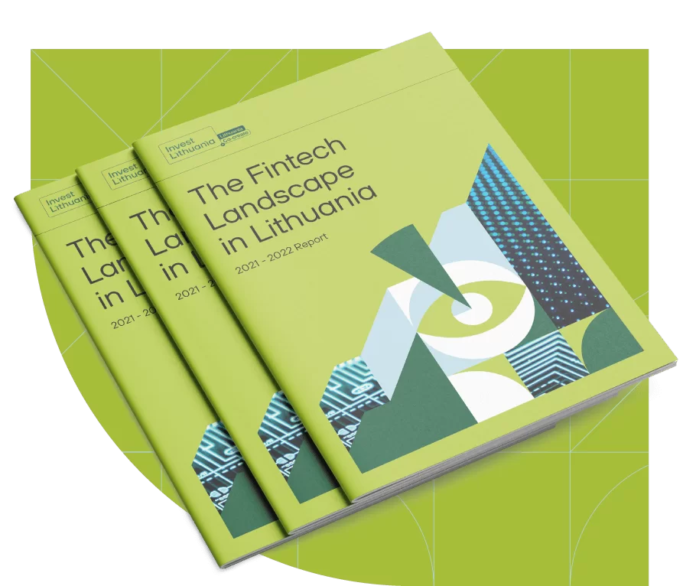According to Invest Lithuania Fintech Report, 2021 was a great success for Lithuania-based fintechs. They take the first place with a total of 147 licensed fintech after France and Germany. The Fintech Landscape in Lithuania 2021-2022 report points out the record growth of the Lithuanian fintech sector in 2021. This growth has also led to an employment increase by 48% and revenue growth by over 25% compared to the previous year.
Lithuania’s Fintech sector at a glance
- 265 – the number of Fintechs operating in Lithuania at the end of 2021
- 1st Largest Fintech hub in the EU in terms of licensed companies
- 147 fully passportable Fintech licences issued
- 9th globally among lowest ML/TF risk jurisdictions
- 6th in OECD for tax competitiveness
Fintech in Lithuania: resilient and focused on quality
2021 was a record year for the fintech sector in Lithuania: the number of employees and revenues smashed previously set records, and 265 fintech companies are already calling Lithuania home (FinTech in Lithuania ’22 map by Rockit). An in-depth analysis is published with The Fintech Landscape in Lithuania 2021-2022.
Lithuania ranks 1st in the EU, with a total of 147 licensed fintechs, when it comes to licensed entities (payment institution, electronic money institution and special banking license holders). Second ranking France has 90 licensed entities, Germany – 86, and Netherlands have 84.
The growth in the number of companies is complemented by a growth in revenue and employees. This serves as proof that Lithuania attracts active fintech companies with tangible value and is not considered for licensing only.
Increased number of employees and revenues
In 2021, the fintech sector had 5,900 employees in Lithuania, which is a 48% increase compared to 2020.
“Fintech companies have proven, time and time again, that Lithuania is a stable partner for business growth. By establishing such core competencies as compliance, customer onboarding and support, product development, business development, and sales here, the majority of international fintechs trust Lithuania with essential functions of their business,” says the Head of Technology Team at Invest Lithuania, Gintarė Bačiulienė.
With well-established brands expanding and newcomers choosing Lithuania, fintechs have generated more than 500 million EUR in revenue in 2021. That shows an increase of over 25% compared to 2020.
Ecosystem diversifies
Payments remain the primary function for Lithuania-based fintechs (31%), but the market is getting more diverse: 18% of companies are working in financial software, 11% in lending, 10% in savings and investments, and 10% in digital banking.
“This is only a start: the Bank of Lithuania aims to develop the country’s potential for fintech solutions for capital markets, with an emphasis on Crowdfunding, Wealthtech, and Green Finance sectors,” said Bačiulienė.
Risk management and solid partnerships
Lithuania established an AML Centre of Excellence in 2021 and ranks 9th globally among the lowest risk jurisdiction (AML Basel Index). More than 10,200 specialists are qualified to work in AML/CTF, compliance or risk management related fields, and 86% of the surveyed fintechs claim they hired specialists with such qualifications last year.
Fintechs have become an active and responsive part of the Lithuanian society. Following the war, Lithuania-based fintechs partnered up with business and NGOs to deliver support for Ukraine. Partnerships create sustainable bonds and help companies diversify the offering of their products. 77% of companies reported they have at least one fintech partner. Partnerships are also thriving outside of the private sector, as Lithuania ranks 1st for university-business cooperation in Central and Eastern Europe.
Head of Rockit, Lina Žemaitytė Kirkman, notes that fintech ecosystem brings financial inclusion: “While it can take a longer time for more traditional players to become more inclusive, fintechs’ agility allows them to lead the way, which is very much needed in today’s context.”
Click here to read more community news.




